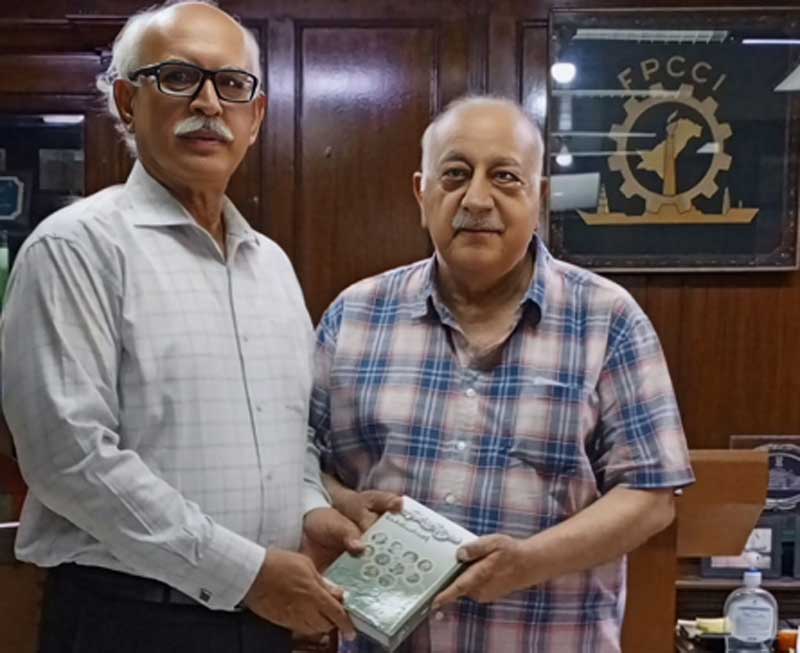Pakistan’s strategic importance lies in its geographical position at the intersection of South Asia, Central Asia, and the Middle East. It shares borders with critical nations, including Afghanistan, China, India, and Iran, making it a pivotal player in regional stability, trade routes, and global power dynamics, particularly in matters of security and energy interests. Pakistan’s economic significance within the realm of geostrategy is substantial. Pakistan serves as a vital transit route for trade and energy corridors.
The war of corridors has lasted for over a thousand years whether they were economic, informational or cultural. The last few decades has prompted a fast tracked battle of corridors with states aligning themselves for regional integration, economic cooperation and strategic reliance all in pursuit of survival. The “big eats small” phenomenon has been challenged to its core as small is moving to form smart partnerships for sustenance on pillars of economics rather than the pillar of a gun as history has taught us. Is it fruitful? Will it last? Time will tell us. Pakistan in its quest for prosperity isn’t shying away from this initiative which is rather impressive to the West & Greater Asia. The reason for this impression is that Pakistan unfortunately has been at the helm of war since the late seventies with the Afghan Russian war and moving on to the Great war on terror. So it is a breath of fresh air for Pakistan. At the same time, it has taken a serious observation of the developed world considering Pakistan’s strategic borders.
Over the past decade, CPEC, as a flagship project of the BRI, has significantly impacted Pakistan. It attracted substantial investment, generated 236,000 direct jobs, and led to the development of roads, power plants, transmission lines, and optical fibre networks.
Against all odds and lack of belief of the developed world, Pakistan is delivering the most advanced Belt & Road Initiative Corridor CPEC. The Special Economic Zones are under development becoming the cornerstone of resource exports to China. It has already changed the game in the region thrusting a battle of corridors. India is frantically coming in half prepared manner with their Chabahar port plan with Iran & Afghanistan and trying moving on with the India-Middle East-Europe Economic Corridor (IMEC) under cooperation of QUAD.
The foundation phase 1 of CPEC is completed and the Phase 2 will begin bearing economic progress thus, the developed world is trying to undo it. Well, you can’t unscramble scrambled eggs but you can disrupt it, as is visible to the naked eye with the sequence of events. Enough said about CPEC as everybody’s been done and dusted in thrashing its pros and cons. A similar scenario lies with China Central Asia West Economic Corridor (CCAWEC) which has been affected by the Russia Ukraine Conflict. CCAWEC is the gateway to Europe and the principal freight train is already in operation with connectivity to 231 European cities with 120 Chinese cities. There are numerous Special Economic Zones with the best one being Great Stone Industrial Park in Belarus.
Pakistan’s economic potential is immense. According to a recent World Bank Report, with sound economic policies, Pakistan’s economy could reach US$ 2 trillion by 2047. Pakistan’s strategic location allows Pakistan to become an important trade, energy and transport corridor. Most importantly, Pakistan is a gateway to energy rich States of Central Asia, the Gulf States and far Eastern countries. This unique feature of Pakistan’s strategic location alone makes it a place of endless possibilities.
Pakistan is a land of opportunities, its economic interests should be the top priority, the Tashkent- Kabul- Peshawar Railway alignment is a step in the right direction for connectivity to Central Asia. Islamabad Kabul relationship is the key for Afghanistan as Pakistan is their biggest cross border trade partner. Pakistan needs to benefit on other ends as well in this promising partnership. Islamabad Tehran Istanbul (ITI) Freight Alignment needs to be re-planned to address the network gauge issue and Pakistan’s incapacitated tracks especially Quetta Taftan alignments. These developments give Pakistan direct and speedy access to European markets at economical and faster terms. Pakistan’s textiles get value addition in Turkey and this arrangement with ITI is a significant boost to our exchequer and foreign currency reserves.
Pakistan & trade in the complicated battle of Economic corridors




